Polish basic corpus of texts
Click here to download the Polish basic corpus of texts.
Polish bibliography of academic texts
Click here to download the Polish bibliography of academic texts.
Authors and books:
Marek Bieńczyk
Marek Bieńczyk – born in 1956; writer, literary historian, professor at the Institute of Literary Research of the Polish Academy of Sciences; an expert on Polish Romantic literature and contemporary French culture, and laureate of the “Nike” Literary Award for his collection of essays Książka twarzy [‘The Book of the Faces’] (2012) and recipient of the Graphic Book of the Year Award (Polish section of the International Board on Books for Young People, 2013). He was also nominated twice for the “Nike” Literary Award: for the novel Tworki (2000) (which won the Passport of the monthly Polityka in 1999 and the Władysław Stanisław Reymont Literary Award in 2000) and for the collection of essays Kontener [‘The Container’] (2019).
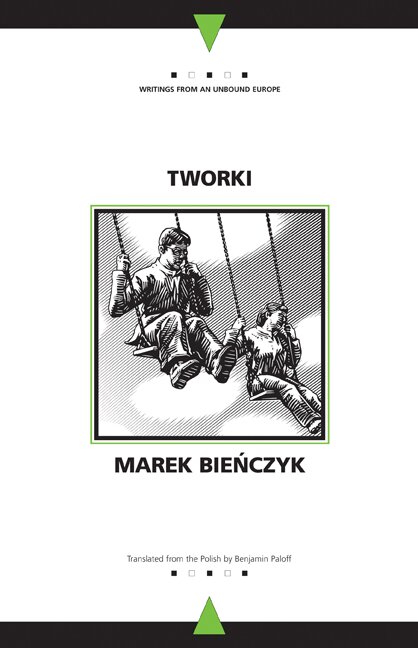
The novel Tworki takes place in 1943 in the titular town Tworki near Warsaw, known for its psychiatric hospital, in operation since 1891 until this day. The protagonists are Polish and Jewish members of lower medical staff. The hospital, where they work but also live and spend time as carelessly as possible, becomes an asylum of normality in a world marred by Shoah. At one point they begin to disappear, only leaving enigmatic letters.
Piotr Paziński
Piotr Paziński – born in 1973; philosopher, literary scholar, journalist, writer, literary critic and translator; former editor-in-chief of the (now defunct) Jewish monthly Midrasz. For his debut novel Pensjonat [‘The Boarding House’] he received the Passport of Polityka (2009) for literature, the European Literary Award (2012), and the book was also nominated for the Nike Literary Award (2012). For the volume Rzeczywistość poprzecierana [‘Rubbed Reality’] (2015) he won the award of the monthly Literatura na Świecie [‘Literature in the World’] and was nominated for the Gdynia Literary Award (2016) in the category “Best essay”. Piotr Paziński has authored two academic monographs: Labirynt i drzewo. Studia nad Ulissesem Jamesa Joyce’a [‘The Labyrinth and the Tree. A Study of James Joyce’s Ulisses’] (2005) and Dublin z Ulissesem. Wraz ze słownikiem bohaterów Ulissesa [‘Dublin with Ulisses. With the Dictionary of the Protagonists’] (2008), as well as the novel Ptasie ulice [‘Bird Streets’] (2013).
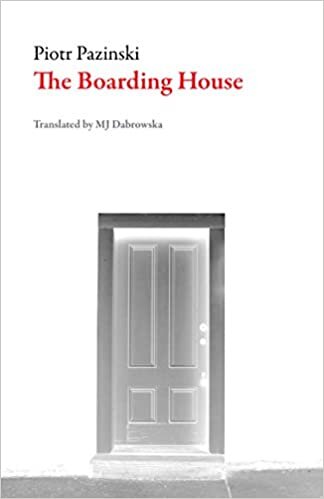
The protagonist of Pensjonat [‘The Boarding House’] is a young man who sixty years after the Shoah visits the Jewish boarding house “Ark” near Warsaw, where he used to spend his holidays. The place, once full of life, is now ruined and lonely, where he can only talk to the ghosts of the Jews he had once met there. The novel is a philosophical tale of passing, of disintegration and reconstruction of a world wiped out. Polish literary critics have hailed it as the most important debut of the third generation of post-Holocaust writers.
Renata Piątkowska
Renata Piątkowska – born in 1958, writer, author of books for children, including Wieloryb (2011), Na wszystko jest sposób (2013), Ciekawe, co będzie jutro? (2014), Hebanowe serce (2016), Nigdy tego nie zapomnę (2017), Biuro detektywistyczne. Dziurka od klucza (2018), To się nie mieści w głowie (2018), Która to Malala? (2018), Mruk. Opowiadania o kotkach, kotach i kociskach (2019), Dzieci, których nie ma (2020) and Zbój. Opowiadania o koniach i konikach (2021). She has received many awards, such as the Kornel Makuszyński Literary Award, the Astrid Lindgren Literary Award for a contemporary book for children and teenagers and the Maria Weryho-Radziwiłłowicz Award for lifetime achievement. She was awarded the Honorary Badge of Merit for the Protection of the Rights of the Child Infantis Dignitatis Defensori. She is a Knight of the Order of the Smile. Four books by Renata Piątkowska have been entered into the Golden List of the ABC XXI Foundation “All of Poland Reads to Kids”.
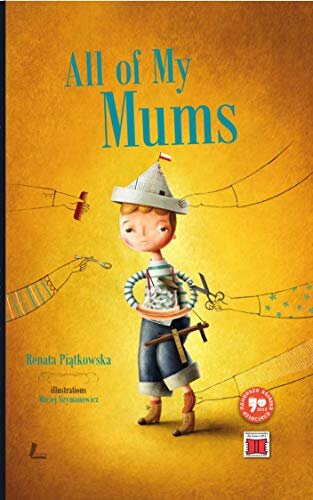
All of My Mums (2013), illustrated by Maciej Szymanowicz, was awarded in the competition for the Best Children's Book “Comma and Dot” (2013). The publication is intended for children over 7 years old and was published in the series Wojny dorosłych – historie dzieci (Wars of adults – stories of children).
Tadeusz Słobodzianek
Tadeusz Słobodzianek – born in 1955, playwright, theater critic, director, producer, founder and artistic director of the Laboratory of Drama at the Dramatic Theatre in Warsaw, director of the Tadeusz Łomnicki Theatre in Wola in 2010-2012 and director of the Dramatic Theater in Warsaw since 2013. Author of dramas such as Car Mikołaj (1985), Obywatel Pekosiewicz (1986), Turlajgroszek (1990), Prorok Ilja (1992), Merlin. Inna historia (1992), Kowal Malambo (1992), Sen pluskwy (2001), Śmierć proroka (2011), Młody Stalin (2013), Niedźwiedź Wojtek (2016), Historia Jakuba (2017), Fatalista. Singerowska historia w V aktach (2019), Geniusz albo metoda działań fizycznych (2020). He has received many awards and distinctions, including the Award of the Stanislaw Pietak Foundation of Rural Culture, the Passport of "Polityka" in the field of theater, the Literary Award of the Kościelski Foundation and the Fringe First at the Edinburgh Festival Fringe.
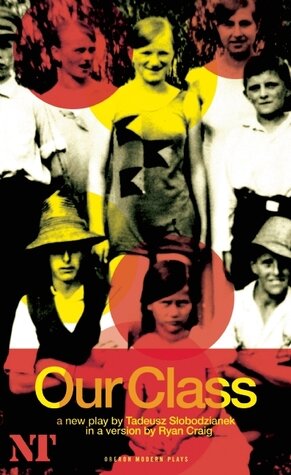
His most famous play is Our Class. History in XIV Lessons (2009), for which he received the Nike Literary Award (2010). The premiere of the play took place at the National Theater in London. Our class has been translated into many languages: English, French, Italian, German, Spanish, Catalan, Hebrew, Hungarian, Czech, Slovak, Romanian, Ukrainian, Russian, Lithuanian, Swedish and Japanese. It is the most frequently staged Polish drama in the world. The international editions of the play received a number of awards, for instance in Hungary, Japan, Lithuania, Sweden and Norway.
Marcin Szczygielski
Marcin Szczygielski – born in 1972, writer, journalist, graphic artist, author of novels for children and adults as well as theater plays. Since 2012 he has been a member of the Polish Writers' Association. He published i.a. Berek (2007), Bierki (2010), Sanato (2014) and Bingo (2015). Apart from that, he has written many books for children and teenagers: Omega (2009), Za niebieskimi drzwiami (2010), Czarny Młyn (2011), Czarownica piętro niżej (2013) and Tuczarnia motyli (2014).
He has been awarded many times for his works for younger audiences. These awards include the Zielona Gąska Literary Award of the Konstanty Ildefons Gałczyński Zielona Gęś Foundation, the Grand Prix of the Astrid Lindgren Literary Competition for a contemporary book for children and teenagers (organized by the ABCXXI Foundation “All of Poland Reads to Kids”), several awards and distinctions in the "Book of the Year" competition of the Polish Section of IBBY, the Literary Award Gulliver in the Land of Giants for achievements in the field of children's and youth literature, as well as the Literary Award of the Capital City of Warsaw.
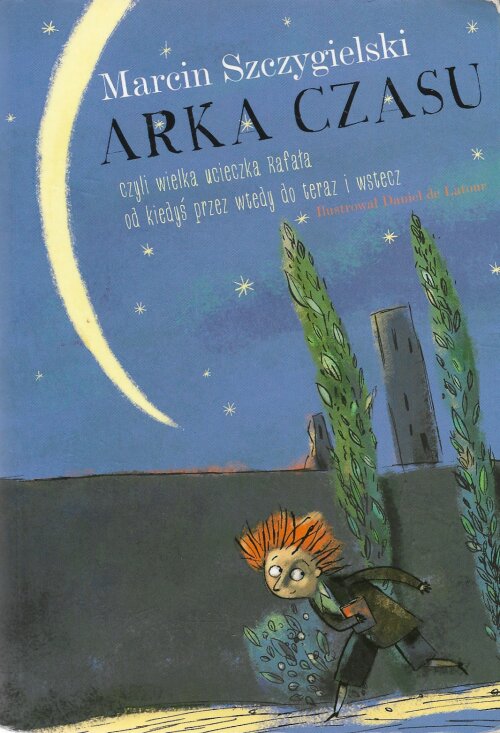
The Ark of Time, or Rafał's great escape from then through to now and back (2013), as the publisher points out, is intended for children over the age of 10. The book gained critical acclaim and received, among other awards, the Grand Prix of the 3rd Astrid Lindgren Literary Competition for a contemporary book for children and teenagers (2013), the 1st Prize in the 3rd Astrid Lindgren Literary Competition in the category of novels for children aged ten to fourteen (2013), a distinction in the Book of the Year 2013 competition organized by the Polish Section of IBBY (2013) and the First Prize in the Halina Skrobiszewska Children's Literature Competition (2014). The Ark of Time was also put on the Treasure List of the Children's Book Museum in Warsaw (2014). It has been translated into German, Ukrainian, Spanish, Russian and English.
Magdalena Tulli
Magdalena Tulli – born in 1955; riter, translator, laureate of the literary award of the Kościelski Foundation (1995), the Gdynia Literary Award (2012), the Literary Award “Gryfia” (2012), the first edition of the Julian Tuwim Literary Award (2013), and the Literary Award of Warsaw Capital City in the category of literature for children and young adults (Ten i tamten las [‘This Forest and That One’], 2018). She was nominated for the “Nike” Literary Award for her novels W czerwieni [‘In the Red’] (1999), Tryby [‘Modes’] (2004), Skaza [‘The Flaw’] (2007), Włoskie szpilki [‘Italian High Heels’] (2012), Szum [‘Noise’] (2015), as well as for the “Angelus” Literary Award of Central Europe (2021).
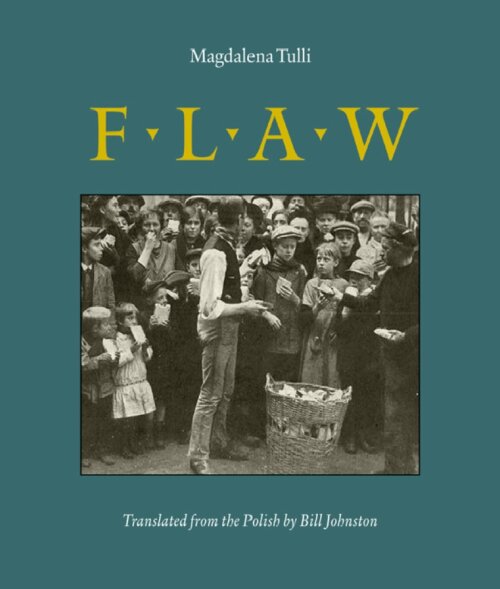
Flaw by Magdalena Tulli metaphorically deals with the Polish memory of the Shoah, the mainly passive attitude of Poles towards the annihilation of Jews, and with the violence that the Jews experienced. The novel is a voice in the discussion on the Polish awareness of the Holocaust, as well as a warning against its repetition. It tells the story of a small community that once arrived by tram to a little town. With nowhere to go, the people were gathered on the town square and gradually began to be perceived as a threat. They were then made to wear armbands for easier recognition and locked in a cellar, as their status was being decided. When eventually the cellar was opened, it turned out to be empty, without a trace of the newcomers.